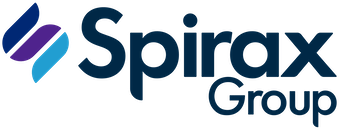Responsibilities of the Board
The role of the Board is to provide entrepreneurial leadership, within a formal governance framework, to promote the long-term success of the Company for its shareholders and other stakeholders, including customers, suppliers, employees and the local communities in which we operate.
Matters Reserved to the Board
Responsibilities of the Board include, but are not limited to:
- Approval of corporate and strategic business plans
- Approval of full and half year results
- Trading updates
- Integrated risk management framework
- Major acquisitions and disposals
- Major capital expenditure
- Director appointments
- Material litigation
- Governance structure
Board Committees
Board Committees exist to provide greater scrutiny, advice and governance to particular areas of the Group e.g. Director Remuneration and Nomination, Audit, Financial and Risk.
They usually consist of a majority of Non-Executive Directors. They have a specified set of duties carved out of the Matters Reserved for the Board.
Audit Committee
The overall purpose of the Audit Committee is to oversee and monitor the entire financial reporting and control process, to ensure the integrity of the Group’s published financial information and assurance over it.
Audit Committee Terms of Reference
- Monitoring the integrity of Financial Statements and any formal announcements relating to the Company’s financial performance, and reviewing significant judgements contained in them
- Together with the Risk Management Committee, reviewing the Group’s internal financial controls, and internal control and risk management systems
- Reviewing the Group’s whistle-blowing arrangements and ensuring that appropriate, independent investigation and follow-up processes take place
- Monitoring and reviewing the effectiveness of the Company's internal and external audit process
- Making recommendations to the Board on the appointment, re-appointment or removal of the external auditor and approving the remuneration and terms of engagement for the auditor
Audit Committee Members
All members of the Audit Committee are Independent Non-Executive Directors.
Members:
Kevin Thompson (Chair)
Peter France
Caroline Johnstone
Richard Gillingwater
Colleague Engagement Committee
The Colleague Engagement Committee was created by the Board in 2019, meeting provision 5 of the 2018 UK Corporate Governance Code and creating a more formal and regular, two-way, direct dialogue between the Board and colleagues, providing tangible insights and ensuring our colleagues' voices are heard in the Boardroom.
Colleague Engagement Committee Terms of Reference
The main duties of the Committee include:
- A programme of engagement activities to enable the Board (and Non-Executive Directors in particular) to have regular dialogue with colleagues
- Overseeing the approach to, the results and action-plans of each biennial global colleague engagement survey
- Regular engagement with senior management across the Group to understand ongoing and developing engagement practices
- Supporting the Audit Committee and the Board in ensuring that procedures in place for colleagues to raise concerns in confidence and anonymously are accessible and publicised
- Making recommendations to the Board on all aspects of colleague engagement, giving full consideration to the matters set out in the relevant portions of the UK Corporate Governance Code 2018.
Colleague Engagement Committee Members
All members of the Colleague Engagement Committee are Independent Non-Executive Directors.
Members:
Caroline Johnstone (Chair)
Angela Archon
Peter France
Jane Kingston
Nomination Committee
The main role of the Nomination Committee is to optimise Board performance, consider succession planning for the future and recommend changes to the Board to match the skills, knowledge and expertise of individuals to those needed to support the strategy and business requirements of the Company.
Nomination Committee Terms of Reference
Responsibilities of the Nomination Committee include, but are not limited to:
- Making appropriate recommendations to the Board for the appointment, reappointment or replacement of Directors
- Reviewing the structure and composition of the Board with regard to the overall balance of skills, knowledge and experience against current and perceived future requirements of the Group
- Considering succession planning arrangements for the Executive Directors and more generally, senior executives
- Overseeing the annual evaluation of the Board and individual Directors, taking into account its composition, diversity and effectiveness
Nomination Committee Members
All members of the Nomination Committee are Independent Non-Executive Directors.
Members:
Tim Cobbold (Chair)
Angela Archon
Constance Baroudel
Peter France
Richard Gillingwater
Caroline Johnstone
Jane Kingston
Kevin Thompson
Remuneration Committee
The main role of the Committee is to determine Executive remuneration policies, how they are applied and set targets for the short and long-term incentive schemes. It also monitors compliance with the presiding Remuneration Policy.
The Committee determines the philosophy, principles and policy of Executive and senior manager remuneration having regard to the latest legislation, corporate governance, best practice and the Financial Conduct Authority (FCA) Listing Rules.
Remuneration Committee Terms of Reference
Responsibilities of the Remuneration Committee include, but are not limited to:
Recommending a remuneration strategy and framework to attract, retain and reward senior executives
- Determining the Group’s Remuneration Policy
- Setting targets for the short- and long-term incentive schemes
- Approving awards under the Performance Share Plan
- Determining annual Executive Director and senior executive remuneration
Remuneration Committee Members
All members of the Remuneration Committee are Independent Non-Executive Directors.
Members:
Jane Kingston (Chair)
Angela Archon
Richard Gillingwater
Kevin Thompson
Risk Management Committee
The purpose of the Committee is to oversee the management and control of significant risks affecting the Group.
The Committee ensures that the Group has robust risk management policies and procedures in place, covering all key areas of risk, such as project governance, sanctions and embargoes, crisis management, human rights, business continuity and business management.
Risk Management Committee Terms of Reference
Responsibilities of the Risk Management Committee include, but are not limited to:
- Using top-down and bottom-up reviews to understand the risks facing the Group
- Determining our appetite for risk
- Accepting and managing those risks which our employees have the skills and expertise to understand and leverage
- Identifying appropriate risk mitigation techniques and countermeasures
Risk Management Committee Members
The Risk Management Committee is made up of the Group Executive Committee and Head of Internal Audit.
The Group Chief Executive chairs the Committee.

